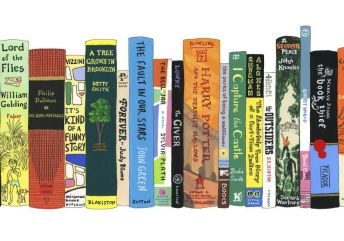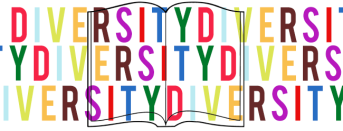Growing up a half-black and half-white young woman, it was not always easy to find books that starred anyone like me, especially popular books. And the strangest thing was, I didn’t see anything wrong with it.

Here at Liberi Libri Media Review, our goal is to seek out the unseen, and lend a critical eye to ideas that don’t always fit in a nice, neat box; and we do so through the lens of Children’s and Young Adult literature. In the literary world, what we tend to see is how adolescent literature is often criticized as being unworthy of critical assessment. The genre, especially YA, is written off as mere entertainment, lowbrow art, all fluff, and no substance, etc. YA authors are subconsciously categorized as less skilled than authors of adult literature. But at Liberi Libri Media Review, we strive to give the YA genre its due consideration as not just tasteless entertainment, but as a complex, nuanced genre deserving of a critical, analytical eye.
So why YA? What makes the genre that produced blockbuster franchises like Twilight, Harry Potter, and The Hunger Games, a genre steeped in consumer culture, deserving of critical, academic analysis? What makes them worthy of more than a mere “Which Harry Potter Character Are You?” quiz in the Seventeen Magazine of your grocery store checkout line?
First off, the Young Adult genre is bigger than it has ever been. More people are reading YA and writing YA than ever before. And it’s not only young people reading these books—adult audiences are some of the most avid readers of adolescent fiction. I think it’s not unreasonable to say that YA is not just a fleeting phenomenon. So what is it that makes it such a literary force to be reckoned with? In a time of franchise films, rampant media merchandise, and fan culture, why, as readers, should we keep listening?
We should listen because YA, especially recently, is one of the most progressive genres in the entire literary industry. Even though it began with a fairly limited scope as far as diversity and representation was concerned (see J.D Salinger’s Catcher in the Rye or John Green’s Looking for Alaska), we now see the genre tackling topics that many other genres (short of nonfiction) have only teased with. YA is emerging as a trailblazer for diversity as we see new stories that highlight social justice, racism, and queer identity flourish in the market. These “weighty” topics are given a space to be explored, and where we tend to think of entertainment and social politics as being mutually exclusive, the YA genre finds ways to blur the dividing line between the two. As a result, we are seeing more representation than we have ever had in such a large market in the mainstream media—and representation matters, especially for young readers.
How often have young adults failed to see themselves in the books they read? As I mentioned, the genre hasn’t always been a paragon of diversity and has seen more than its fair share of white, male, cisgender protagonists. But the genre is in the midst of a revolution. More than ever, we are seeing characters who do not subscribe to the traditional, “default” character of the early aughts of YA literature. In a recent article on Book Riot about all of the YA novels of 2019 starring queer girls, author Tirzah Price writes “I remember the days when you could count on hand the number of YA books about queer girls that released in any given year.” But this is no longer the case. And other recent releases such as Tomi Adeyemi’s Children of Blood and Bone, Adam Silvera’s They Both Die at the End, and Tahereh Mafi’s A Very Large Expanse of Sea showcase diversity in ways that the genre hasn’t always been known for.

On a personal note, I have always felt somewhat isolated by YA literature. Growing up a half-black and half-white young woman, it was not always easy to find books that starred anyone like me, especially popular books. And the strangest thing was, I didn’t see anything wrong with it. This brainwashing was done completely unconsciously—I did not realize I had subscribed to this idea of a single kind of character until I got older and began writing for myself, and realized that I was writing from the perspective of a white male. I had to ask myself: why? Why would I immediately choose to write from the perspective of someone I had no personal connection to? And that was when I realized the extent to which the things I was reading had affected my expectations on what a YA novel had to be.
This is why representation is so important. Because of all of the single-sided stories I had read as a young woman, I had unconsciously convinced myself that someone like me was not worthy of being a protagonist. This kind of thinking is dangerous and can have resonances in our adult lives. Reading stories from a single perspective can easily convince anyone who is “other” that their voice is unimportant, not just in the literary realm, but in any and every aspect of their lives.
This is why it is so important to lend a critical eye to YA literature. It’s primarily teens who read these novels, and their growing and developing minds will absorb the messages of these stories, whether it’s done so consciously or not. And if each story they read is all the same, the urge to subscribe to the wills and influence of the majority is almost impossible to avoid, and diversity becomes all but obsolete. But if we lend a critical eye to the genre, open up a conversation about what it’s doing, and highlight moments of diversity and bring them into the mainstream, we can affect drastic change.
The “danger of a single story” is a real threat to diversity. By highlighting narratives that veer from the norm, we can promote tolerance and acceptance, and take the first step (a baby step though it may be) towards creating a more understanding world.
